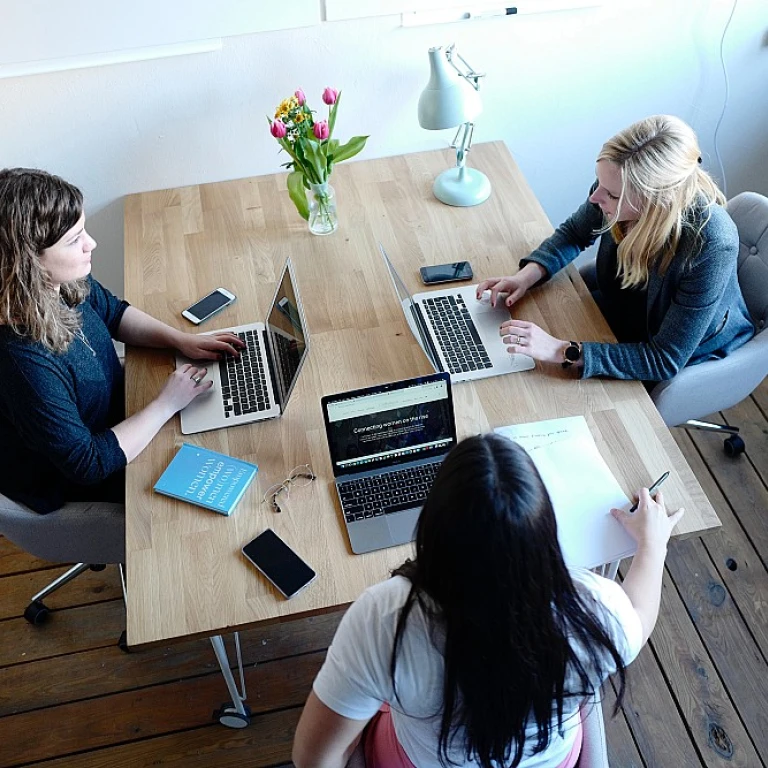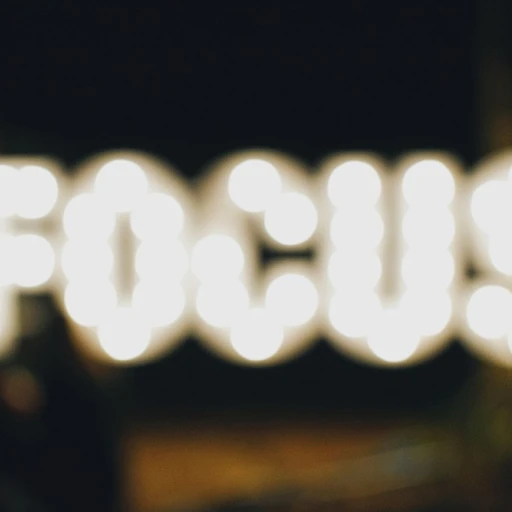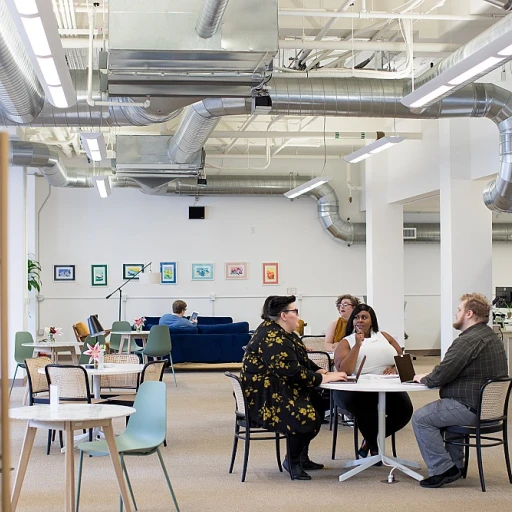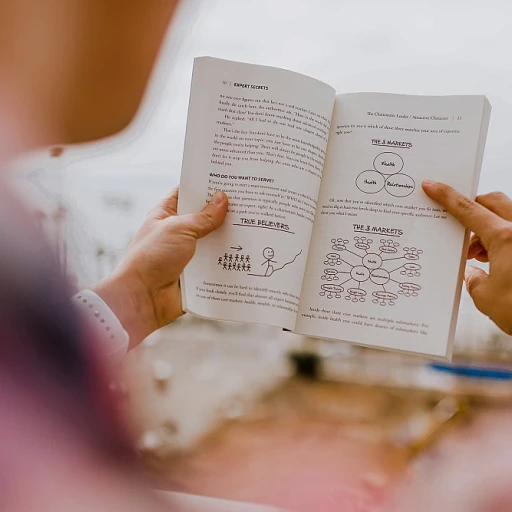
Understanding the core responsibilities of an event coordinator
What Does an Event Coordinator Actually Do?
The role of an event coordinator is all about making sure events run smoothly from start to finish. Whether it’s a corporate meeting, a marketing launch, or a special event like a wedding, coordinators are responsible for every detail. The job description often covers a wide range of tasks, and the work can be both challenging and rewarding. Event coordinators are the backbone of event planning, ensuring that every aspect is handled professionally.
Main Responsibilities You’ll Find in This Job
- Planning and organizing: Coordinators work closely with clients and event planners to understand the vision and requirements for each event. This includes selecting venues, managing budgets, and creating timelines.
- Vendor management: Coordinators are responsible for sourcing and negotiating with vendors, including caterers, decorators, and audio-visual teams, to ensure everything is in place for the event.
- Logistics and operations: From arranging transportation to setting up the venue, coordinators handle all logistics to ensure a seamless experience for attendees.
- On-site management: During the event, coordinators oversee the setup, troubleshoot any issues, and make sure everything runs according to plan.
- Post-event follow-up: After the event, coordinators often gather feedback, manage invoices, and ensure all loose ends are tied up.
Where Event Coordinators Work
Event coordinators can be found in a variety of industries, including corporate event management, marketing agencies, non-profits, and hospitality. Some specialize in virtual events, while others focus on in-person gatherings. The event coordinator job description can also vary depending on the type of events, such as sports, conferences, or special events including fundraisers.
Why This Role Matters
Coordinators play a crucial part in event planning and execution. Their skills in organization, communication, and problem solving help ensure that events meet their objectives and leave a positive impression. For those considering an entry level position or looking to fill a coordinator job, understanding these core responsibilities is key to succeeding in the field and advancing in event management careers.
Key skills and qualifications needed for event coordinators
Essential Abilities for Success in Event Coordination
To thrive as an event coordinator, you need a mix of practical skills and formal qualifications. The job description for this role highlights a variety of tasks, from event planning and management to working with vendors and ensuring every detail runs smoothly. Whether you are aiming for an entry level coordinator job or looking to advance your career, understanding these requirements can help you stand out in interviews and on the job.
- Organizational Skills: Coordinators must juggle multiple events, timelines, and responsibilities event after event. Strong organizational abilities are crucial for managing logistics, schedules, and resources efficiently.
- Communication: Clear communication is key when working with clients, vendors, and team members. Event coordinators need to convey information, negotiate contracts, and ensure everyone is on the same page.
- Problem Solving: Unexpected issues can arise during event planning or at the venue. The ability to think quickly and resolve problems is highly valued in this job.
- Attention to Detail: Every aspect of an event, including catering, décor, and meeting arrangements, requires careful attention. Overlooking small details can impact the overall experience.
- Time Management: Coordinators often work on tight deadlines and must prioritize tasks to ensure events including virtual events, run smoothly and on schedule.
- Teamwork and Leadership: Event planners frequently lead teams and collaborate with others. Leadership skills help motivate staff and ensure everyone works toward a common goal.
- Technical Skills: Familiarity with event management software, marketing tools, and virtual event platforms is increasingly important, especially for coordinators handling hybrid or online events.
Qualifications and Background
Most event coordinator jobs require at least a bachelor degree, often in hospitality, marketing, communications, or a related field. However, relevant experience in event planning or event management can sometimes fill the gap for those without formal education. Entry level roles may offer on-the-job training, but professional certifications or internships can boost your profile.
Employers also look for candidates who demonstrate a passion for events, a strong work ethic, and the ability to handle pressure. Experience with special events, corporate meetings, or large-scale conferences is a plus. For those preparing for interviews, it’s helpful to review tips on getting ready for HR job interviews to present your skills and experience confidently.
In the next section, we’ll look at the common challenges event coordinators face and how to address them in your job search and interviews.
Common challenges faced by event coordinators
Facing the Unexpected in Event Coordination
Event coordinators often deal with a fast-paced environment where no two days are the same. The job description might look straightforward, but the reality involves juggling multiple responsibilities event planners face, from last-minute changes to managing diverse teams. Here are some of the most common challenges in the coordinator job:
- Time management: Coordinators must balance planning, marketing, and execution, often for several events including virtual events and special events at once.
- Problem solving under pressure: Issues like vendor cancellations, venue problems, or technical glitches can arise unexpectedly. Event coordinators need strong problem solving skills to ensure the event runs smoothly.
- Communication breakdowns: Coordinators work with clients, vendors, and internal teams. Miscommunication can lead to missed deadlines or unmet expectations.
- Budget constraints: Staying within budget while meeting client expectations is a constant challenge, especially for entry level coordinators still building their experience.
- Managing multiple stakeholders: Events often involve different departments, sponsors, and attendees. Balancing everyone’s needs requires diplomacy and strong management skills.
Event planners must also adapt to changes in the industry, such as the rise of virtual events and evolving marketing strategies. The role event coordinators play is dynamic, requiring ongoing learning and flexibility. For inspiration on creative ways to handle challenges and keep events engaging, check out these creative ways to celebrate special events.
Understanding these challenges is key for anyone preparing for an event coordinator job interview. It helps you fill gaps in your skills and better explain your experience in meeting and event management, which can set you apart from other candidates.
How to showcase your experience in an HR job interview
Highlighting Your Event Planning Achievements
When discussing your experience as an event coordinator in an HR job interview, focus on the impact you made in previous roles. Instead of just listing your responsibilities, share specific examples of events you managed, the challenges you overcame, and the results you achieved. For example, mention how you coordinated a large-scale conference or managed multiple virtual events simultaneously. Quantify your achievements whenever possible, such as the number of attendees, budget managed, or percentage increase in event satisfaction.Demonstrating Key Event Management Skills
HR professionals want to see evidence of your core skills. During the interview, weave in examples that show your strengths in:- Project management and organization
- Problem solving under pressure
- Vendor and venue coordination
- Marketing and promotion of events
- Communication and teamwork
Connecting Your Experience to the Job Description
Before the interview, review the coordinator job description carefully. Match your experience to the specific requirements and responsibilities event coordinators are expected to fill. For example, if the role emphasizes special events or virtual events, share relevant stories from your background. Use language from the job description to show you understand what the employer is looking for in an event planner or events coordinator.Showcasing Professionalism and Adaptability
Event coordinators often work with diverse teams and must adapt to changing circumstances. Share examples of how you handled last-minute changes, managed difficult stakeholders, or ensured a smooth event experience despite unexpected challenges. This demonstrates both your professionalism and your ability to thrive in the dynamic world of event planning.Tips for Entry Level Candidates
If you are new to the field, focus on transferable skills such as organization, communication, and time management. Discuss any experience you have with planning meetings, coordinating group projects, or supporting marketing efforts. Even if you haven’t held the title of event coordinator, showing your enthusiasm and readiness to learn can make a strong impression.Questions HR might ask about the event coordinator job description
What HR Interviewers Want to Know About Your Event Coordination Experience
When you step into an HR interview for an event coordinator job, expect questions that dig into your real-world experience and your understanding of the role’s responsibilities. HR professionals want to see how you handle the demands of event planning, your approach to problem solving, and your ability to ensure smooth event management from start to finish.- Describe your experience with different types of events including virtual events, special events, and large-scale meetings. HR will want to know if you can adapt your planning skills to various settings and audiences.
- How do you prioritize tasks and manage time when coordinating multiple events? This question tests your organizational skills and ability to handle overlapping responsibilities event planners often face.
- What steps do you take to ensure every detail is covered, from venue selection to marketing and guest management? Here, interviewers look for your attention to detail and your understanding of the full event management process.
- Can you share an example of a challenging situation during an event and how you resolved it? This is where your problem solving skills and ability to stay calm under pressure come into play.
- How do you collaborate with vendors, clients, and team members to fill all the requirements of an event? HR wants to see your communication and teamwork skills in action.
- What tools or software do you use for event planning and management? Familiarity with industry-standard tools can set you apart, especially for entry level candidates or those looking to move up in their coordinator job.
- How do you measure the success of an event? This question explores your ability to evaluate outcomes and apply feedback for continuous improvement.
How to Prepare for These Questions
- Review the job description carefully and match your experience to the specific responsibilities listed.
- Think of concrete examples from your work as an event planner or coordinator, including times you managed multiple events or overcame unexpected challenges.
- Be ready to discuss your educational background, such as a bachelor degree in event management or related fields, and how it supports your professional skills.
- Practice explaining your approach to event planning, from initial concept to post-event evaluation, highlighting your strengths as an event coordinator.
Mistakes to avoid when discussing your event coordinator experience
Common Pitfalls When Presenting Your Event Coordinator Experience
When discussing your background in event planning during an HR job interview, it’s easy to fall into certain traps that can weaken your impact. Here are some mistakes to watch out for:- Focusing only on logistics: While managing venues, schedules, and vendors is important, don’t limit your description to just these tasks. Highlight your broader responsibilities, such as marketing, budgeting, and team management, to give a complete picture of your coordinator job.
- Overlooking problem-solving examples: Event coordinators often face unexpected challenges. Failing to mention how you handled last-minute changes or resolved conflicts can make your experience seem less dynamic. Share specific situations where your problem-solving skills made a difference.
- Not quantifying your impact: Simply listing duties from your job description isn’t enough. Use numbers or outcomes where possible. For example, mention the size of events you managed, the number of attendees, or how you improved event efficiency.
- Ignoring teamwork and leadership: Event planning is rarely a solo effort. If you don’t talk about how you collaborated with other event planners, vendors, or marketing teams, interviewers might question your ability to work in a team or lead projects.
- Leaving out virtual events experience: With the rise of virtual events, not mentioning your experience with online platforms or remote event management can be a missed opportunity, especially for entry level or modern coordinator roles.
- Failing to tailor your answers: Each coordinator event job may have unique requirements. Avoid giving generic responses. Instead, connect your experience to the specific responsibilities event coordinators are expected to fill in the role you’re applying for.
- Downplaying soft skills: Communication, adaptability, and attention to detail are as important as technical skills. Don’t forget to include examples that show your professional approach and interpersonal strengths.












